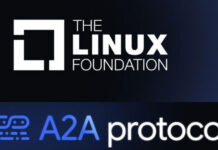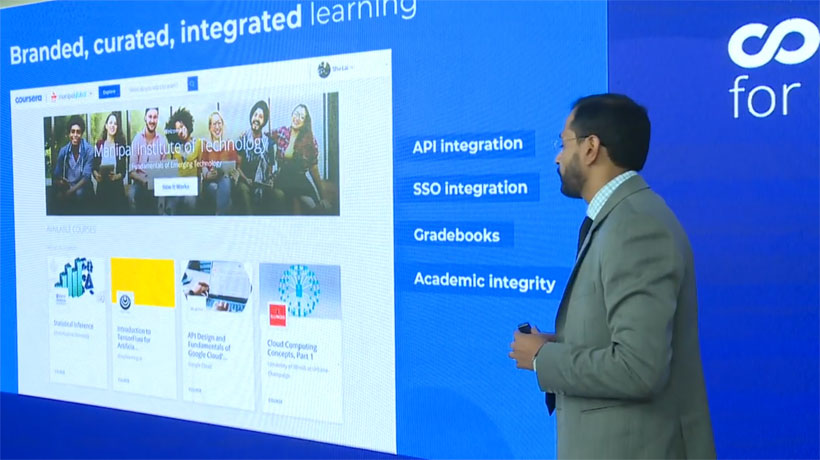 Mikel Amigot | IBL News
Mikel Amigot | IBL News
“Coursera for Campus is not a full-featured LMS,” said Jeff Maggioncalda, CEO of Coursera, during the announcement event in India, on October 3rd. “We expect many universities to stay on their LMSs.”
According to the company, Coursera for Campus’ LMS is designed to supplement the existing Canvas, Blackboard and Moodle systems.
Its main utility refers to authoring content for private audiences such as residential students, alumni, faculty members, and staff.
The SSO (Single Sign-On) and APIs are apparently intended to facilitate further integrations. The collection of distinctive features include analytics, live-hands on labs, in-browser coding, plagiarism detection, Jupyter Notebooks and gradebook integration.
Jeff Maggioncalda insisted on the message of collaboration and not being an alternative LMS.
So far 20 partner universities, including Duke and Illinois, have piloted Coursera for Campus, and 10 additional universities are using an early version of it.
Last week, when Coursera for Business was advertised, representatives of the company highlighted that this new LMS was designed to deliver online courses and interactive lessons better than most LMSs.
“We’re talking about a potential major disruption to the LMS market,” Leah Belsky, Coursera’s Vice President of Enterprise said on EdSurge. “We don’t have all the features of an LMS but what we do have is all the tools to create cutting-edge interactive learning experiences.”
Michael Feldstein, a known consultant and author at the eLiterate blog, doubted that universities will replace their learning management systems with Coursera’s. “MOOC platforms are interesting and have some innovative features, but they are neither mature for their original purpose nor tuned for the broad range of usage that a campus LMS must serve,” Michael Feldstein wrote.
The edX Consortium had always offered to its affiliated members a private, yet unbranded, authoring platform called Edge.

• Michael Feldstein’s Blog Post: The MOOC-Courseware Convergence

 En Español
En Español





















